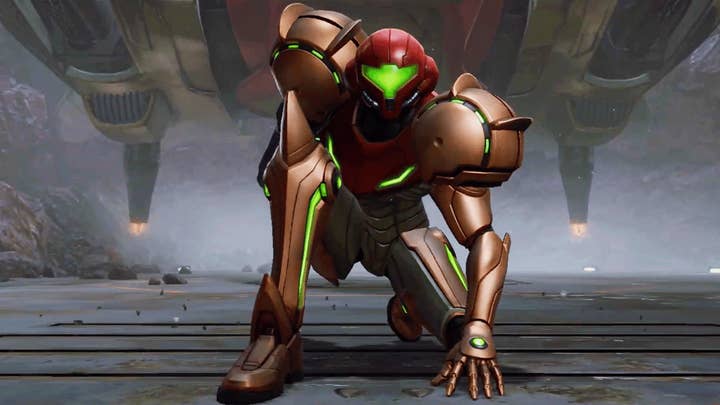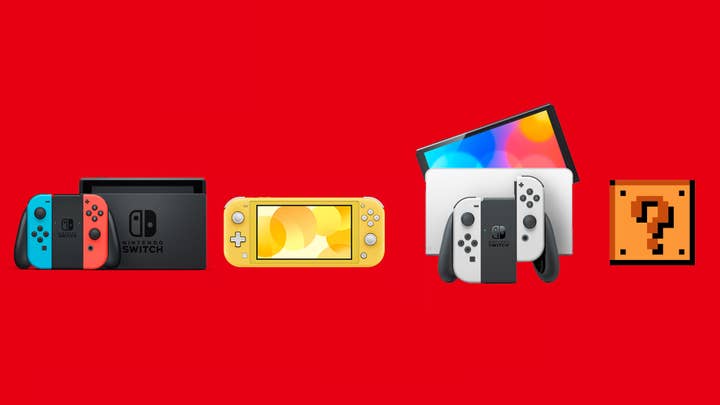Nintendo Switch 2 will avoid the fate of Wii U | Opinion
Backwards compatibility was inevitable, but it's not good news for everyone
There's this anxiety within the industry regarding Switch 2, which is around this notion that Nintendo tends to follow a success with a flop.
Nintendo followed the smash hit Wii with the Wii U failure. Nintendo 3DS sold half as many units as the DS. It's a trend, you see?
In truth, that analysis isn't quite right. Nintendo's handheld business has always been relatively robust. The numbers fluctuate, but you wouldn't classify any of Nintendo's portables as failures. In terms of home consoles, things have been in steady decline for decades. If you draw a line from NES to Wii U, Nintendo has dropped around 10m players with each generation... the Wii being a rogue anomalous spike in that decline.
The Switch is its own thing. Both a handheld and a home console. But there's no denying its portability is a key selling point, and so I'd be inclined to look at sales of Nintendo's handhelds as a better indicator of where things may go.
Yet really, looking at historical data only takes you so far. And that's because the industry, and the playing behaviour of gamers, has shifted significantly since even the Wii U era. That's why Nintendo's confirmation of backwards compatibility was so important with Switch 2.
"Convincing players to move between generations is getting harder, and that's no surprise when the games they love still run perfectly well on older hardware"
Backwards compatibility is the norm with Nintendo. The Game Boy Advance, DS, 3DS, Wii and Wii U all had some form of it. Yet whereas it was a nice feature for those products, I'd argue it has become essential in the modern age. To quote former Sony boss Shawn Layden, we're entering an era of games hardware where the differences are so small "only dogs can hear them". I'm not suggesting the technical leap with Switch 2 won't be significant, but the reality is that gamers today are happy playing titles that are ten years old (or even older). They still look and play very nicely, and titles like Minecraft, The Sims 4, and GTA 5 still regularly top the charts. That's a shift from a generation ago.
Then there's the digital and live service component of modern games. Nintendo isn't the strongest in this area (and we'll come back to that), but there is nonetheless an audience that wants to take their game libraries, their DLC and their hard earned in-game progress from one generation to the next. This is a change from previous eras, where each generation felt like a fresh start and a hard reset.
It does pose a challenge, as we've seen with PlayStation 5 this year. Convincing players to move between generations is getting harder, and that's no surprise when the games they love still run perfectly well on older hardware. But it also means audiences are sticking with their ecosystems, as opposed to switching platforms between each generation. If Switch 2 wasn't backwards compatible, that's one less reason for them to stick with Nintendo when it comes to the next machine.

I am not making any predictions over whether Switch 2 will surpass the install base of its predecessor. We've not even seen the device, after all. But Nintendo has an engaged and active audience it can work with in a way it couldn't before, which should give it a decent base in which to build from.
One of the stats Nintendo quoted in its latest financials is that it had 127 million annual playing users. It's slightly strange to report player numbers on an annual basis opposed to a monthly one (although perhaps a reflection of Nintendo's more casual audience), but it's a number that has consistently gone up. This time last year, that number was 122 million. That's the addressable market Nintendo will be speaking to when it finally launches its next machine.
So backwards compatibility, although expected, is an essential component when it comes to modern player habits. But it has its downsides, particularly when it comes to sales of new games.
Many of the third-party developers that backed Switch from the beginning (which wasn't a huge number) benefited significantly from their decision. The Switch wasn't backwards compatible, and there wasn't a huge array of titles available from the start, which had a positive impact on new game sales (including a number of indie titles). With Switch 2, I expect most third-parties will be there from the beginning. We've already seen a commitment from Microsoft over Call of Duty, and that company is now the biggest third-party games publisher in the world. But on top of that, there are thousands of older games that will be playable on the platform from day one via backwards compatibility.
Therefore, competition for attention on Switch 2 will be a lot fiercer this time around.
"Nintendo consoles still depend on Nintendo games, and the firm is having to grapple with lengthening development schedules this time"
Nintendo does have some challenges with its next product. Nintendo consoles still depend on Nintendo games, and the firm is having to grapple with lengthening development schedules this time. It also doesn't have a bank of Wii U games barely anyone played to port over and plug gaps in the schedule. It is trying to react to that by expanding its internal dev resources and also partnering with more third-party teams to create games based on their IP. But these partnerships and expansions will take time.
Switch also benefited from the COVID-19 lockdown boost, which saw millions of people turn to gaming to occupy them during this period of isolation. Hopefully, that's not a situation that will be repeated with the next generation.
Regardless, Nintendo doesn't need to sell 150 million units of Switch 2 for it to succeed. I mentioned earlier how Nintendo is not the strongest when it comes to digital and live service. Compared to PlayStation and Xbox, Nintendo's digital business is still relatively fledging. According to our recent study with GSD, we found that the majority of Switch games from major publishers are still sold mostly via physical retailers. Nevertheless, sales on eshop are steadily growing, and that growth will benefit Nintendo's bottom line more than physical sales will.
We're also seeing Nintendo experiment further with online offerings, including its recent mysterious online game test, and the launch of its new Nintendo music app. All of this has the potential to increase recurrent consumer spending.
It's obviously far too early to make a judgement call on Switch 2 – again, we've not even seen the console. But backwards compatibility with Switch, both digitally and physically, should ensure it avoids past failures.
And with a commitment to further digital developments, I feel there are some big reasons to be optimistic, and not fearful, around Nintendo's financial future.

